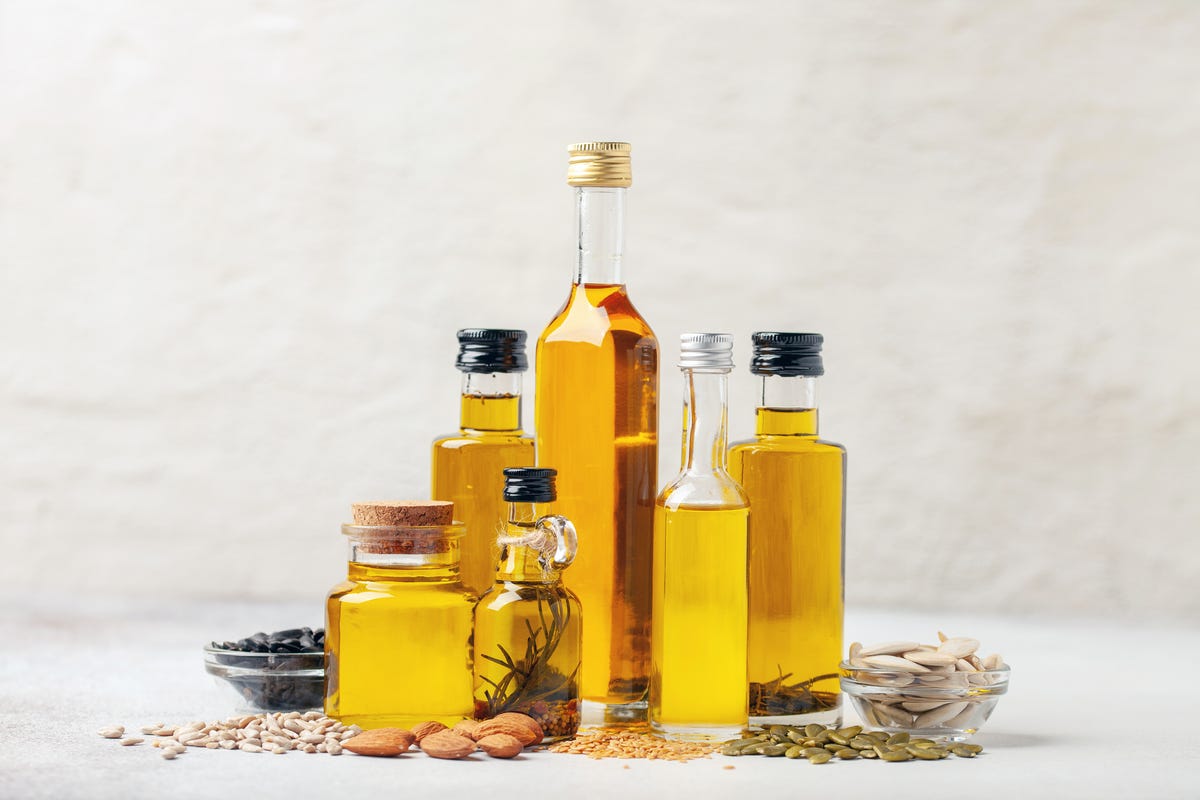
It seems you hear about another food group you need to avoid every day. It might be the sugar content pumped into our foods, GMOs or bread. It can be hard to figure out what is actually good or bad for us after a while. One of the common cooking ingredients that recently landed on the dietary no-no list recently is seed oil. Are seed oils bad for you? No, in fact, they're actually quite healthy, and below we'll explore why.
What are seed oils?
Seed oils are any oils that have been derived from a type of seed. They're made directly from pressed seeds. Common types of seed oils might include canola, safflower, cottonseed, grape seed and sunflower seed oils.
What is the problem with seed oils?
It has been making the rounds on social media sites like TikTok that seeds oils can be bad for you and possibly even toxic. But are they, really?
The Harvard T.H. Chan School of Public Health addressed where the misconception may come from. Seed oils are often used in packaged foods and fried foods. However, the seed oil is not what makes people feel ill or unhealthy. Unhealthy foods that use seed oil like fries, donuts or chips might also be high in sodium, sugar and refined carbs. Naturally, cutting these foods out of your diet may make you feel healthier, but that does not mean it was the seed oil that was directly causing health problems.
There is some debate about one of the fats in seeds oils, omega-6. It's a polyunsaturated fat, and -- like all fatty acids -- is necessary for our diet. However, some researchers have found that high levels of omega-6 in comparison to lower levels of omega-3 can increase inflammation and even cause certain diseases. While studies don't necessarily link omega-6 fats to inflammation, it is the overconsumption of omega-6s often found in processed foods that lead to this. The goal is not to reduce the use of these vegetable or seed oils but to boost your omega-3 intake naturally from fish, nuts, olive or avocado oil.
Harvard Health also states there is no need to avoid omega-6 fatty acids. They can lower bad LDL cholesterol and raise good HDL levels. Omega-6 fatty acids can also keep blood sugar levels in check.
Busting the seed oil myth

Seed oils are not evil, despite what you may have seen online. A heart health guide from the CDC lists seed oils, including canola oil, cottonseed oil, safflower oil and sunflower oil, as a healthy fat. The guide does state that anyone concerned about heart issues may want to limit these, but they are still necessary and good for your heart -- just high in calories. The CDC recommends using small amounts of these healthy fats to sauté, roast, grill or stir-fry foods.
Studies are also rife with the healthy benefits of seed oils. Pumpkin seed oil may help with cardiovascular problems in menopausal women and issues related to an imbalance in hormones. Grape seed oil may have cardioprotective and anticancer effects. Pomegranate seed oil has seen promise in weight loss in rodents.
Seed oils also contain both omega-3 and omega-6 fats. Omega-3 may help with chronic inflammatory diseases, such as obesity, arthritis and cardiovascular disease. Flaxseed oil has high concentrations of omega-3 fatty acids in the form of alpha-linolenic acid, according to the Harvard T.H. Chan School of Public Health.
What oil is the healthiest?
With so many oils out there, you might be wondering which are the best ones to use in cooking. Some of the healthiest oils to use are olive oil, avocado oil, coconut oil and sunflower oil. They're all known for their nutrients and healthy fat content. For instance, both avocado oil and sunflower oil are high in vitamin E.
The bottom line
Seed oils are just fine for us in moderation, as even the CDC states that they can be high in calories. The main problem with seed oils is that they tend to be used to make less nutritious foods, such as pastries, chips and fries. Cutting these foods out tends to make us feel healthier. If anything, you should avoid highly processed foods using seed oils instead of avoiding using these oils in your home-cooked meals.
The information contained in this article is for educational and informational purposes only and is not intended as health or medical advice. Always consult a physician or other qualified health provider regarding any questions you may have about a medical condition or health objectives.









 Add Category
Add Category